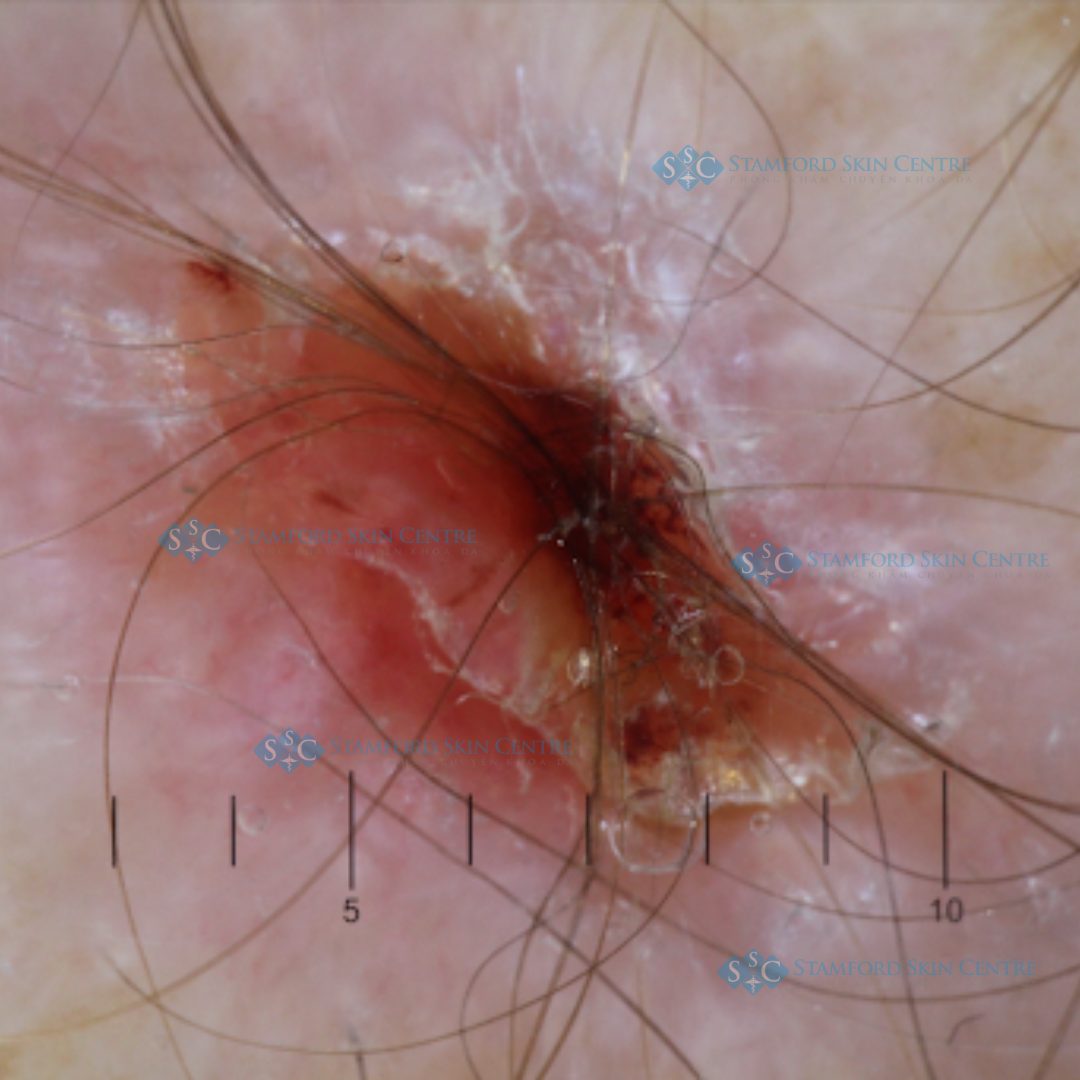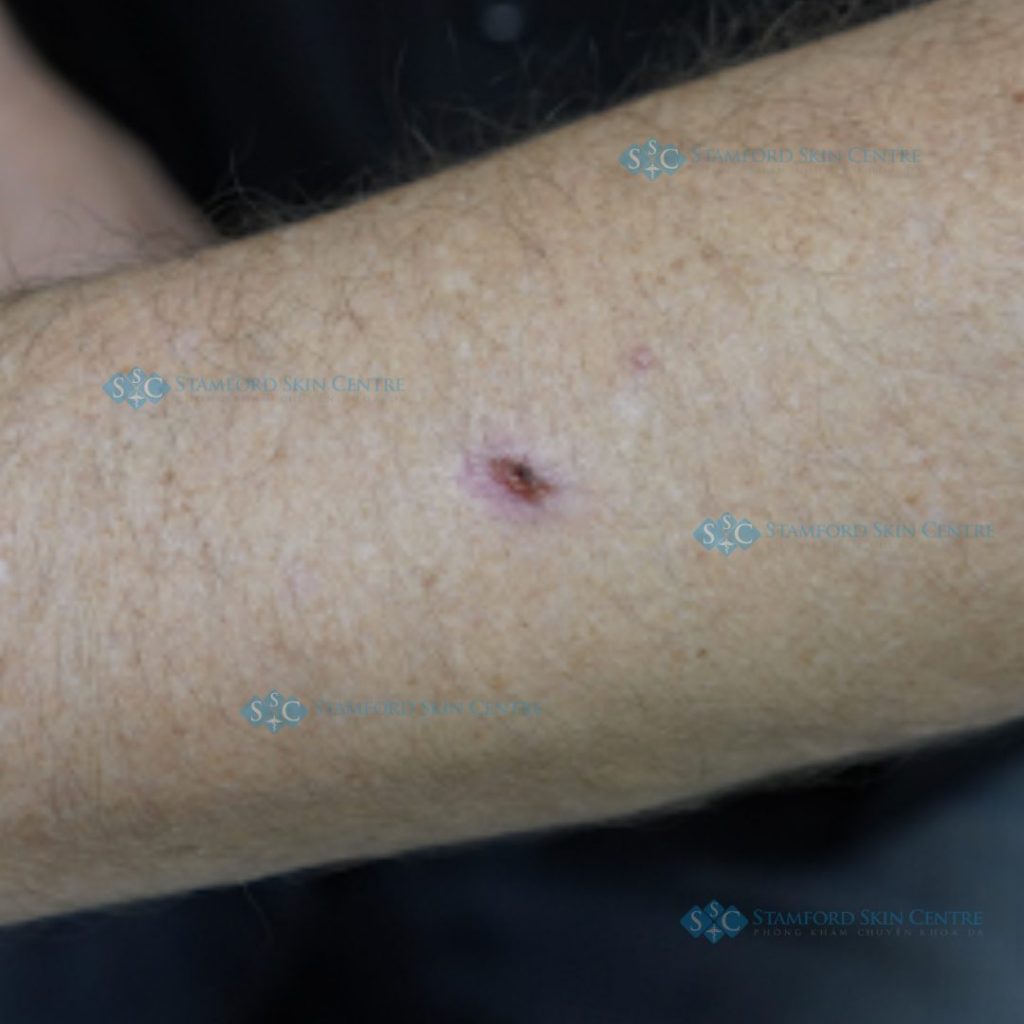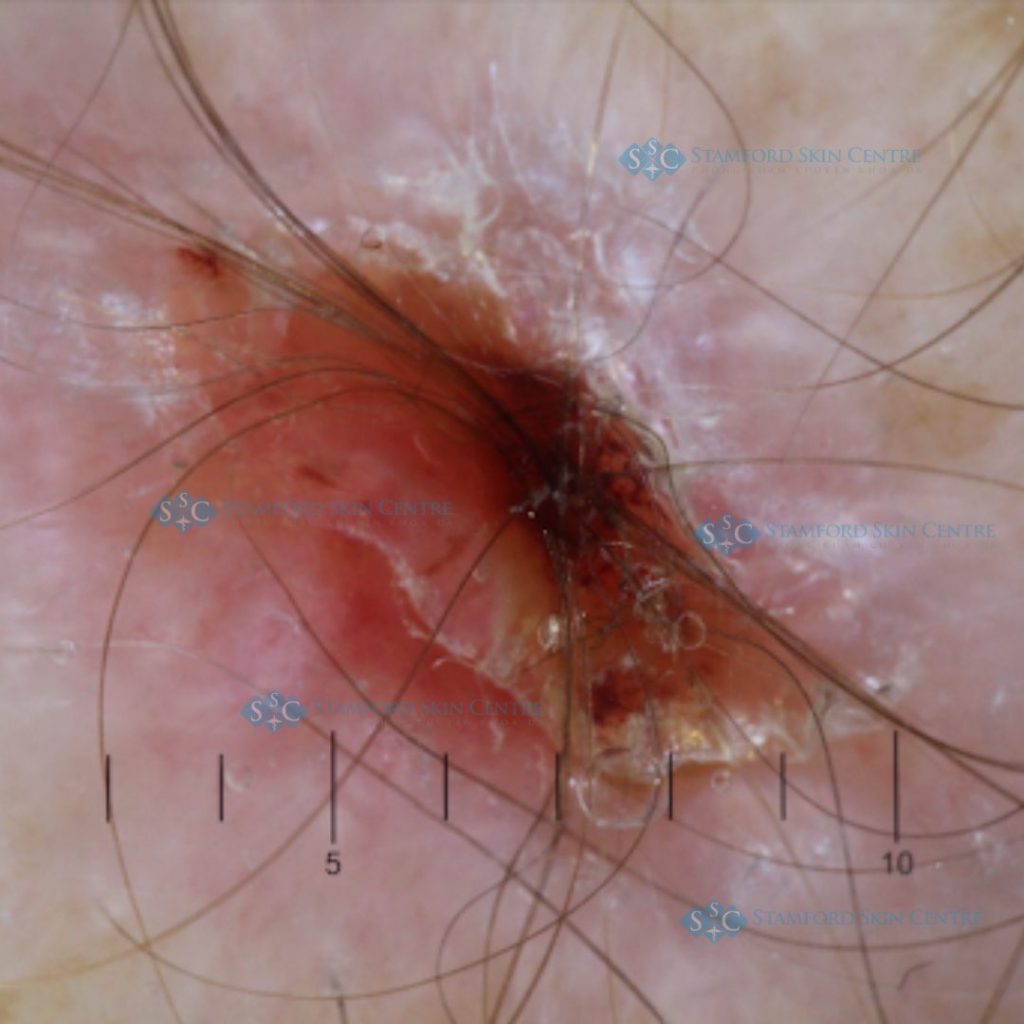
Male patient, 58 years old, neither he nor his family has a history of skin cancer. The
patient visit dermatology clinic because of a nodule on his forearm that was slow to heal
and had lasted for 1 year. After excision and pathological examination, the result was
Nodular Basal Cell Carcinoma.


Basal cell carcinoma (BCC), previously known as basal cell epithelioma, is the most
common cancer in Humans. BCC mostly arises on sun-damaged skin and rarely develops
on the mucous membranes or palms and soles. Basal cell carcinoma is usually a slow-
growing tumor for which metastases are rare. Although rarely fatal, BCC can be highly
destructive and disfigure local tissues when treatment is inadequate or delayed. On
clinical examination, BCC usually appears as flesh- or pink-colored, pearly papules with
overlying ulceration or telangiectatic vessels. BCC occurs on the head or neck in the
majority of cases, but can involve the trunk and extremities.
More than 26 different subtypes of BCC appear in the literature, but the more common,
distinctive, clinicopathologic types include: nodular, micronodular, superficial,
morpheaform, infiltrative and fibroepithelial (also known as fibroepithelioma of Pinkus).
Combinations of these types can occur as well. The majority of BCCs are amelanotic, but
variable amounts of melanin may be present within these tumors.
The most common sites for nodular basal cells are the face, especially the nose, cheeks,
forehead, nasolabial folds, and eyelids. Patients often give a history of crusting and
recurrent bleeding, causing them to seek evaluation. Pigmented nodular BCCs are more
common in dark-skinned individuals.
The current mainstay of BCC treatment involves surgical modalities such as excision,
electrodesiccation and curettage (EDC), cryosurgery, and Mohs micrographic surgery.
Such methods are typically reserved for localized BCC and offer high 5-year cure rates,
generally over 95%.
———-
For more information, please visit : https://stamfordskin.com/en/dermatology/skin-
cancer-basal-cell-carcinoma/